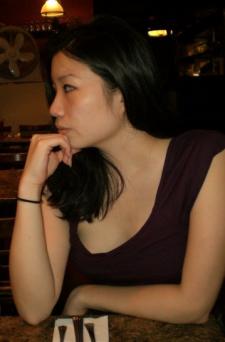Gloria L. Huang on her story "Ordinary Things" from issue 299.4
“Write what you know” must be one of the earliest writing clichés in my memory. Presumably I dismissed this advice out of hand, which would explain my dim recollections of a nine-year-old self penning dramatic stories involving kidnappings, abandoned children, sudden blindness—none of which, I am happy to report, could fall under the category of “what I know.”
Over the years, somewhere in my written life, things changed. More and more, my experiences became the seeds from which my stories were born, whether the experience was significant or mundane, personal or secondhand. I began to find it easiest to start from within a memory or a feeling, and spin outwards from there. By the time I was finished writing, however, the story bore only a fun-house resemblance to myself. Speckled pieces of my life were scattered across the words, but twisted into something different, unrecognizable. It was the ultimate game of “what if,” played to conclusion in my written world.
“Ordinary Things” rises from this method of writing. Having a baby threw my life—not to mention my writing career—into deep, unfathomable chaos. I found it difficult to write about anything else. And let’s be honest, for a while I found it difficult to write at all. Just as children grow and change, so did my life and my stories. I started writing “Ordinary Things” one day when the country was gripped in the aftermath of another mass shooting, and I dared to imagine the terror that someone trapped in that situation would feel. This imagining shed new light over my entire life, and I realized that what I would miss most of all, what I’d be most afraid of losing, would be the little things—the tiny moments that flit by without fanfare, that make up your life in the end.
The narrative of “Ordinary Things” is split between more personal musings on the choices involved in having a family, framed against a hypothetical consideration of the paralyzing fear someone might experience if trapped in a grocery store with an unidentified shooter. The merging of these two lines of writing was somewhat accidental, for the former grew naturally as I explored the latter. The story that emerged captured more than my attempt to understand an unthinkable, terrifying experience. It also constituted my written acceptance of a life, both real and written, that had transformed irreversibly. Though I might miss the freedom of life and writing enjoyed by my past self, I know now that there is beauty in the ordinary things.
This illustration also accompanied "Ordinary Things" in our print issue. The artist, Anthony Tremmaglia is an Ottawa-based illustrator, artist, and educator. His clients include WIRED, Scientific American, Smart Money, HOW, and San Francisco Weekly. Anthony is featured in issues 299.1, Winter 2014 & 299.4, Fall 2014. http://www.tremmaglia.ca/
Recommended
Nor’easter
Post-Op Appointment With My Father
Cedar Valley Youth Poet Laureate | Fall 2024 Workshop







